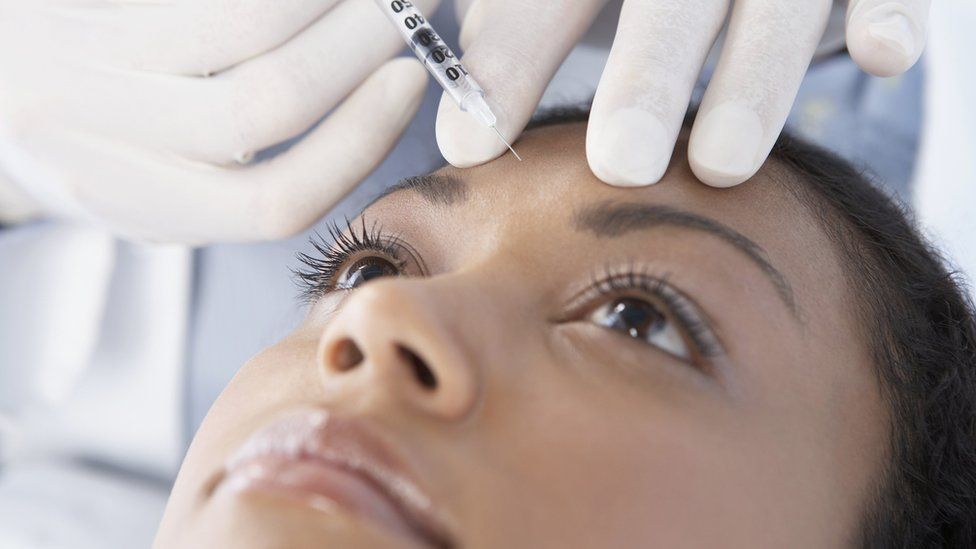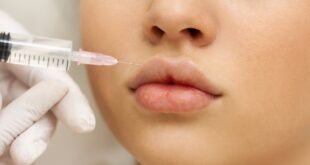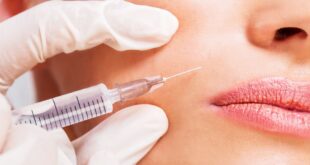
The government could ban unlicensed providers of cosmetic treatments in England, in what industry bodies say would be the biggest shake-up in a generation.
Under the plans, anyone carrying out Botox, breast or butt lift injections would have to be trained and licensed, with their premises also inspected.
The proposals have been have been opened up for public consultation.
But some say enforcing the regulations could be a challenge.
There has been an explosion in cosmetic procedures in recent years, with much of it being fuelled by sales on social media and in beauty shops on the High Street.
At present, healthcare professionals such as doctors, nurses and dentists carrying out non-surgical cosmetic procedures have to be trained and insured to do them as part of the requirements laid down by their regulatory bodies.
But there is no set training for beauty therapists and other non-professionals.
In early 2022, the government said it wanted to introduce a licensing scheme for Botox and fillers to protect patients, with details to be firmed up after a public consultation.
Maria Caulfield, the minister for women’s health strategy, said there had been “too many stories of people who’ve had bad experiences” from getting a cosmetic procedure from someone who is inexperienced or underqualified.
Nearly 3,000 were sent last year to registered practitioner service Save Face, out of a total of 900,000 non-surgical cosmetic procedures carried out in the UK.
- Botox ‘left woman unable to open eye for 16 weeks’
- ‘I couldn’t close my lips after botched filler’
- Non-surgical beauty industry like Wild West – MPs
Ms Caulfield said it was the government’s role “to ensure consistent standards for consumers and a level playing field for businesses and practitioners”.
Former Love Island contestant Faye Winter said Botox procedures which had gone “terribly wrong” left her in physical pain and impacted her mental health.
The TV personality told BBC Radio 4’s PM programme how on one occasion she had Botox injected into the wrong muscles, leaving her eyebrows paralysed.
She continued: “I didn’t want to leave my house, I was crying…when I look back I really wish there was someone there who said ‘you don’t need that, are you sure you want to do that? – not ‘okay, well I’ll take your money’.”

The proposed new licensing scheme will make it a criminal offence for anyone to carry out non-surgical cosmetic treatments without a licence.
The BBC understands that injections for vitamins, weight loss and hay fever will be included on that list of treatments.
Those administering them will have to be trained, qualified and experienced, have the correct insurance cover and operate from clean and hygienic premises which are also licensed.
The scheme will be administered by local authorities across England.
Prof David Sines, chairman of the Joint Council for Cosmetic Practitioners charity, said: “This will dramatically improve consumer safety and reduce the risk of injury and harm arising from ‘botched’ and improperly performed cosmetic treatments.”
Ashton Collins, director of Save Face, said the licensing scheme was still in its “very early stages” and the main focus had to be public safety.
She is concerned that online sellers of cheap beauty treatments who “operate in the shadows” will remain unlicensed.
She also said too many people assume the person injecting is trained and do not ask to see their qualifications, or request the face-to-face consultation with a healthcare professional to which they are entitled.
So-called “Brazilian butt lifts” and breast enlargement injections are thought to be the most high-risk unregulated procedures on offer in the UK.
It became illegal to give Botox-style injections or fillers for cosmetic reasons to under-18s in England last year. It is also illegal to advertise the treatments to children.
People and businesses can share their views in a consultation on the licensing scheme until 28 October on the government website.



